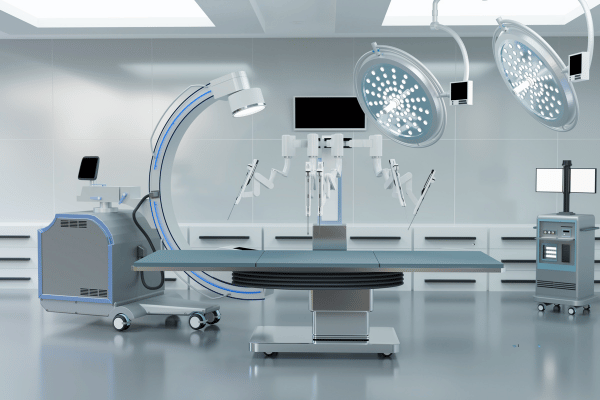The Global Cleanroom Technology Market: A Pillar of Precision and Safety

The global cleanroom technology market is a fundamental and rapidly expanding sector, providing controlled environments essential for the manufacturing and research of high-value, contamination-sensitive products. Cleanrooms are specialized facilities designed to maintain an ultra-low concentration of airborne particles, microbes, and other pollutants. They achieve this through a combination of highly filtered air, specialized construction materials, and strict operational protocols. The need for such pristine environments is driven by a wide range of industries where even the smallest contaminant can compromise product integrity, from semiconductors and electronics to pharmaceuticals and medical devices. The global cleanroom technology market size attained a value of USD 6.20 Billion in 2024. Driven by widespread advancements in technology and a multitude of end-use industries, the market is anticipated to grow at a Compound Annual Growth Rate (CAGR) of 5.90% during the forecast period of 2025-2034, positioning it to attain a value of USD 11.00 Billion by 2034. This robust growth reflects the increasing demand for quality, safety, and precision in a globalized economy.
Key Market Drivers and Industry Applications
The primary force propelling the cleanroom technology market is the stringent regulatory environment and the growing focus on product quality and safety. Regulatory bodies like the U.S. Food and Drug Administration (FDA) and the European Medicines Agency (EMA) mandate strict cleanliness standards for the production of sterile medical products and drugs, which necessitates the use of advanced cleanroom technologies. This regulatory pressure is a key factor in the market's growth. The market is also benefiting from significant investment and growth in end-use industries, particularly the biotechnology and pharmaceutical sectors. The development of complex biological molecules, personalized medicines, and advanced therapies requires highly controlled and sterile environments, creating a massive and sustained demand for cleanroom infrastructure. Similarly, the semiconductor and electronics industry is a major driver, as the miniaturization of electronic components requires pristine environments to prevent microscopic particles from causing defects. Other key industries driving the market include medical device manufacturing, hospitals, and aerospace.
Market Segmentation and Product Landscape
The cleanroom technology market is highly segmented by a variety of factors, including product type, construction type, and end-user. By product type, the market is broadly divided into equipment and consumables. While the equipment segment, which includes HVAC systems, air filters, air showers, and laminar flow units, holds a significant market share, the consumables segment is also a major and fast-growing category due to the continuous demand for products like gloves, wipes, cleaning products, and specialized apparel. In terms of construction type, the market includes standard cleanrooms, modular cleanrooms, and mobile cleanrooms. Modular cleanrooms, which offer flexibility, scalability, and faster installation, are a key growth area. From an end-user perspective, the market is dominated by the pharmaceutical and biotechnology industries, which require the highest levels of cleanliness and sterility. However, the market for cleanrooms in hospitals, medical device manufacturing, and semiconductor fabrication is also expanding rapidly.
Challenges and Restraints
Despite its favorable growth outlook, the cleanroom technology market faces several significant challenges. The most prominent is the high initial capital investment required to design, construct, and certify a cleanroom facility. This can be a major barrier to entry for smaller enterprises and organizations with limited budgets. The market is also grappling with the high operational costs associated with maintaining a cleanroom, primarily due to the immense energy consumption of HVAC and filtration systems. The complexity of regulatory compliance across different countries and the need for continuous monitoring and validation also pose a significant challenge. Furthermore, the industry faces the challenge of human error and the need for continuous training and strict adherence to protocols by personnel, as people are a major source of contamination.
Regional Market Dynamics
Geographically, the cleanroom technology market is highly concentrated in mature and rapidly developing economies. North America holds the largest market share, driven by a well-established pharmaceutical and biotechnology industry, stringent regulatory standards, and high R&D expenditure. The region's focus on advanced therapies and biopharmaceuticals ensures a consistent demand for high-grade cleanrooms. Europe is another significant market, with growth fueled by strong manufacturing bases for pharmaceuticals and a growing emphasis on energy-efficient solutions. The Asia-Pacific region is projected to be the fastest-growing market throughout the forecast period. This rapid expansion is a result of a massive boom in the manufacturing sectors of countries like China, India, and South Korea, particularly in semiconductors, electronics, and medical devices. The region's growing investments in healthcare infrastructure and rising demand for quality products are creating significant opportunities.
Future Outlook and Innovations
The future of the cleanroom technology market, as it moves towards a valuation of USD 11.00 Billion by 2034, will be defined by continuous innovation and a strategic focus on efficiency and intelligence. A key trend is the deeper integration of AI and the Internet of Things (IoT), which will enable real-time monitoring and automated control of environmental parameters, leading to improved efficiency and reduced human intervention. The development of antimicrobial surfaces and advanced materials that actively neutralize contaminants is another major trend that will enhance cleanliness. The market will also see a greater focus on sustainability, with new systems designed to reduce energy consumption and environmental impact. As the market expands from its 2024 value of USD 6.20 Billion, its success will depend on its ability to provide more cost-effective, intelligent, and sustainable solutions that can meet the complex and ever-evolving needs of critical industries worldwide.
- Art
- Causes
- Crafts
- Dance
- Drinks
- Film
- Fitness
- Food
- الألعاب
- Gardening
- Health
- الرئيسية
- Literature
- Music
- Networking
- أخرى
- Party
- Religion
- Shopping
- Sports
- Theater
- Wellness




